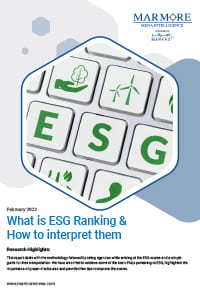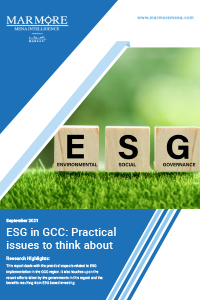Executive Summary
ESG is no longer driven by altruism; Cheaper cost of debt, higher foreign inflows, more government concessions and returns seem to drive the ESG trend. Corporates are at a defining moment to act on ESG. Surface level promises and sustainability targets are being heavily criticized and they miss to fully capture the essence of ESG. High ESG rating is proven to be beneficial to the company, investors, environment and society at large.
This report deals with the methodology followed by rating agencies while arriving at the ESG scores and a simple guide for their interpretation. We have also tried to address some of the basic FAQs pertaining to ESG, highlighted the importance of proper disclosures and provided few tips to improve the scores.
Key Discussion Points
- How do rating agencies convert and interpret raw data into ESG scores
- Analyzing the ESG scores from a company's point of view
- Importance of proper disclosure of ESG data
- Can my ESG ranks improve by just disclosing certain information?
- The benefits of having a high ESG scores
- How did one of UAE's leading real estate developer improve its ESG scores and what benefits did it enjoy
- Ways to improve ESG ranking
Did you know?
- Investors now view the ESG ranking as a measure of future risks associated with the stock, not yet captured in the financial data.
- The exact methodology for ESG ranking will differ amongst the agencies.
- Unlike balance sheet or profit & loss statement, at present we don't have a fixed set of information to be disclosed or a uniform format which the companies across segments could adopt.
- The company might miss out an opportunity to have better ratings by merely disclosing them
- As opposed to credit rating where rating agencies engage with the companies before coming to a conclusion, some rating agencies might issue ESG scores to a company solely based on publicly available information.
- Out of the 600-700 companies listed in the GCC region, we currently have ESG information for only around 130 companies.
- Two companies having similar ESG performance can have different ESG scores.
- Green Bonds and sustainability linked loans have lower interest rates compared to conventional ones.
- Improvement in ESG scores might reduce the borrowing costs





